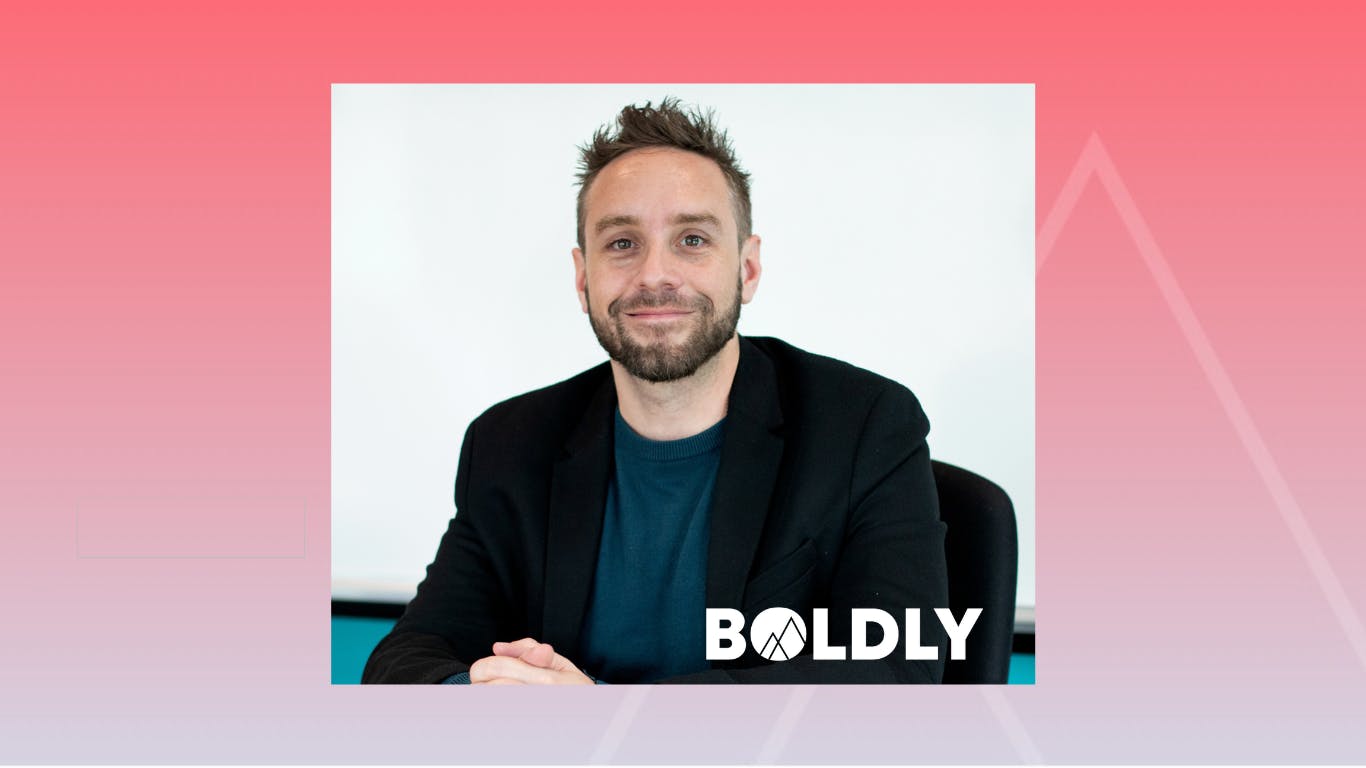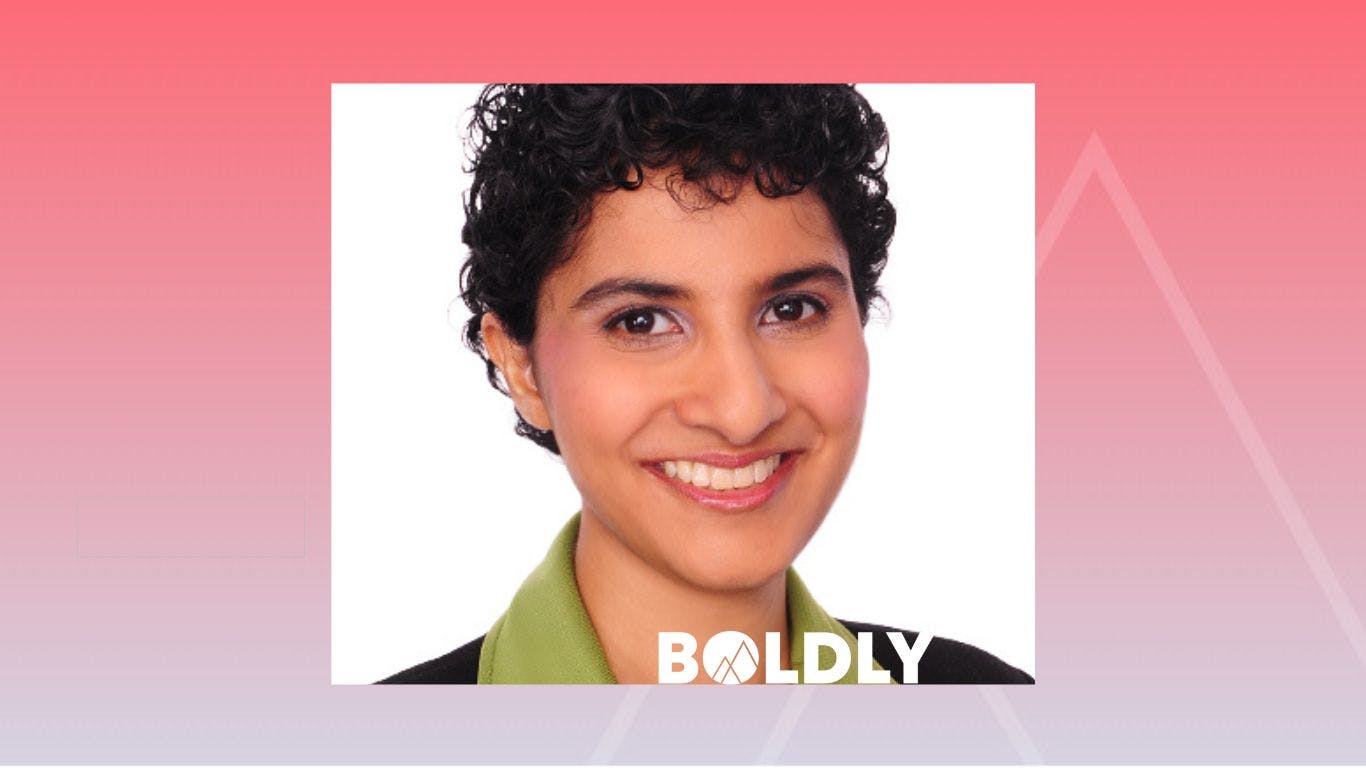Coach Spotlight: Coach Gemma
Posted by Lisa Singh
Welcome to the Boldly Coach Spotlight! Today, we are excited to feature Gemma, an ICF accredited coach and organizational psychologist with 20 years of international experience as an Executive Coach and in-company trainer. Fluent in Catalan, Spanish, and English, she helps leaders develop new communication strategies, manage stress during transitions, and build effective relationships, with expertise in time management, resilience, assertiveness, influence, and work-life balance. Welcome Gemma!
1) You're located in Barcelona, Spain, can you share with us any hidden gems or favorite spots that you would recommend to someone visiting for the first time?
If you visit Barcelona for the first time you cannot miss all the Gaudi´s work: Park Guell, Palau Guell, Sagrada Familia, la Pedrera (don´t miss the roof!). A long walk along the beach before enjoying a nice paella for lunch or dinner. It´s also very beautiful the see the city from above, the 2 mountains surrounding Barcelona: Montjuic and Tibidabo.
2) What's the most interesting thing you've read or watched recently?
“Hidden Potential” from Adam Grant. Also, a book of poems and a financial book written by a colleague.
I love films, I watch more films than series. The last film I saw is “The Tree of Life” a super beautiful film to watch.
3) You have been coaching for over 20 years, what first peaked your interest and what keeps you in the industry?
I studied clinical and organizational psychology. I am both a psychologist and a coach. Initially, I worked as a psychologist in Marketing Research, but I found it professionally unfulfilling. However, my enduring interest in understanding and supporting people led me to pursue training as a Professional Coach. It turned out to be one of the best decisions I've ever made. Nearly two decades later, I still feel passionate about my work.
You've also been the Academic Director of a Postgraduate training program in Coaching and Neuroscience. How has that given you an edge in your own executive coaching?
Neuroscience is currently in a golden age, and it's truly a privilege to witness these advancements. It offers us unprecedented insights into human beings, moving beyond mere observation of behaviors to real-time measurement of brain activity. The applications of neuroscience span various fields, and its integration into coaching and leadership is particularly fascinating.
In coaching, this deeper understanding afforded by neuroscience allows us to grasp reactions and challenges more comprehensively. Above all, it equips us with the tools to effectively facilitate habit change, making coaching interventions more targeted and impactful.
5) What role do you believe training and development play in establishing and sustaining a coaching culture within an organization?
Training and coaching are indispensable components for organizations in today's dynamic workforce. Technology evolves rapidly and market demands shift constantly, investing in the development of employees through training and coaching is a must. Training equips employees with the necessary skills and knowledge to perform their roles effectively, while coaching provides ongoing support and guidance to enhance their performance and foster continuous improvement. Together, they not only empower employees to adapt to changes but also drive innovation, productivity, and overall organizational success. Having a Coaching Culture is essential for organizations striving to remain competitive and resilient in the business.
6) Can you talk us through the link in leadership behaviors and associated neuro-cognitive activity?
I recommend watching videos featuring Richard Boyatzis, a Professor in the Departments of Organizational Behavior, Psychology, and Cognitive Science at Case Western Reserve University. Boyatzis's work delves into the application of scientific research in Coaching and Leadership.
In today's dynamic professional landscape, leaders are tasked not only with achieving KPIs, goals, and strategies but also with inspiring, supporting, and developing their teams. Understanding this dynamic through the lens of neuroscience offers valuable insights into effective leadership practices.
A fundamental aspect to remember is that our brains are wired to avoid threats and seek rewards. This innate mechanism served us to survive in the jungle in the past, and continues to influence our behavior today, even in the modern office environment. Leaders who grasp this concept can better navigate the complexities of human motivation and behavior, fostering environments conducive to growth, collaboration, and success.
7) How do you stay current with the latest research, trends, and best practices in executive coaching?
I attend conferences, read books, see videos and trends on LinkedIn, blogs and webinars from ICF, ACC, ASESCO, and platforms and consultancy firms I collaborate with.

8) How do you define a "coaching culture," and why is it important for organizations?
Having a coaching culture is important to promote learning and growth, foster collaboration and trust, empower employees, drives innovation and trust, improves performance and productivity.
Overall, cultivating a coaching culture is essential for organizations to thrive in a competitive landscape by nurturing their most valuable asset—their people—and maximizing their potential for success.
A coaching culture it´s also a culture where individuals at all levels are encouraged to engage in coaching conversations, both giving and receiving feedback, and supporting each other's growth and development.
9) In considering the challenges or uncertainties associated with career transitions, what strategies or approaches do you use in your coaching to help coachees navigate the changes?
During career transitions it´s a great time to do Coaching. Many times, the professional is promoted because he/she is excelling on what is doing. When the person is promoted, it is most probable they are going to need a different set of skills. That is why coaching can be of great help so support to stretch certain skills in a save context feeling reassure and supported. The coaching sessions can become a great moment to stop and reflect on self-development.
10) You have worked with some big-name clients. Why do you think these clients have chosen to work with you, and why should prospective clients also choose you in the future?
To best answer your question, I'll share some testimonials about how is to work with me!
General Manager | Strategy & Energy Transition at Shell | Mentor
I have been working with Gemma as an executive coach for 6 months as part of my transition to the corporate headquarter. Gemmas has been an excellent coach! Her style is very thought provoking and I always gained valuable insights as part of our sessions which I could immediately implement and check back with her. She is a very good listener, but also challenges your own perceptions. Her support has helped me a lot in being very effective in this time of transition. Thanks very much - I can highly recommend her as a coach!
Chief Officer Public Affairs, Communication & Sustainability at Coca-Cola Europacific Partners
I had a one year program coaching with Gemma and it really added value for me. She perfectly understood the challenges I faced, empathized absolutely and targeted her program and sessions totally focused. She attended always very prepared the sessions and kept the focus in the goals during the whole year, being always really helpful, professional and empathic. Totally recommendable to be coached by Gemma.
Global Credit Manager at Shell Trading & Supply
Excellent working with Gemma for 6 months. She really made me comfortable and able to open up. The conversations weren't always easy but she steered them to be valuable. I am much more self aware now, thanks to Gemma.
Lead Disaster Risk Management Specialist at The World Bank
Gemma was my coach for about 6 months under the World Bank coaching program. Her support was excellent at a time when I moved to a different leadership position. Her coaching style was great and tailored to my needs. I highly recommend her.
Thank you, Coach Gemma, for being our featured spotlight guest this week at BOLDLY Coach! To book your free 30-minute chemistry session with Coach Gemma or explore our services at BOLDLY, visit www.boldly.app or contact us at connect@boldly.app.
About the Author:
Lisa Singh is an Australian, living with her family in the beautiful South Pacific. As Coach Business Partner Lead for BOLDLY, Lisa's team screen and onboard coaches onto our global marketplace, then enable the matching and engagement process so that coaches can do what they do best: deliver exceptional coaching journeys to our coachees. In her role with BOLDLY she loves meeting top coaches and promoting their work for a win:win. Connect with Lisa here:



